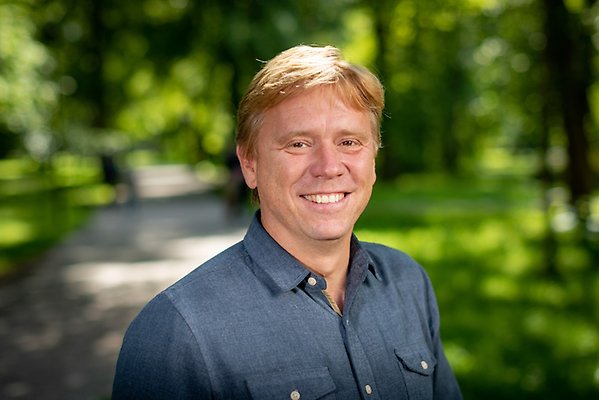Mats Målqvist, Professor of Global Health

Photo: Mikael Wallerstedt
Mats Målqvist is Professor of Global Health at the Department of Women’s and Children’s Health.
Which is your field of research?
“Global health with a focus on health systems, implementation research and health equity.”
In which way do you work work with sustainability?
“Good and equitable public health is a prerequisite for sustainable development. The third Global Sustainability Development Goal emphasises the importance of access to healthcare for all. By identifying and understanding the cause of health inequity and finding new ways in which to implement existing knowledge, my research contributes to sustainable development.”
Do you work together with other parts of the University today?
“I represent the Faculty of Medicine in the Forum for Medical Humanities and Social Vision and since the start of this term, I’m a member of the board of SWEDESD (Sustainability Learning and Research Centre). I plan future research projects together with researchers in sociology, psychology and health economics.”
What progress have you made recently?
“Through studies in Nepal of health inequities, we have been able to show how, by reducing the gap between poor and wealthy, good health effects can be achieved throughout the society and also, which areas need to be improved in order to achieve equal health for all. In Nepal and Vietnam, we have also been able to demonstrate how different strategies for transforming knowledge into healthcare practices based on participation and reflection can lead to improved child survival. In our collaboration with UNICEF in Nepal, our research into the removal of the umbilical cord in newborn infants, the group has contributed to the WHO changing its guidelines on the recommended time for removing an umbilical cord.”
Which do you think are the main future challenges in your field?
“Creating transdisciplinary contexts that go beyond a multidisciplinary approach and finding ways in which to take full advantage of the varying discipline’s methods and perspectives. This requires conscious initiatives and efforts in academia and society that are open to new ways of thinking and acting, beyond today’s limiting structures.”
Which cooperations and initiatives would you like to see in the future?
“For the University to create a platform for work and research into global health that will also facilitate collaborations between various faculties. Given the breadth and outstanding reputation of Uppsala University across the world, such a transdisciplinary centre, hub or school could potentially influence on both a national and international level and strongly contribute to the process of sustainable development.”
Karl Åstrand
